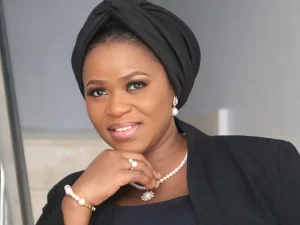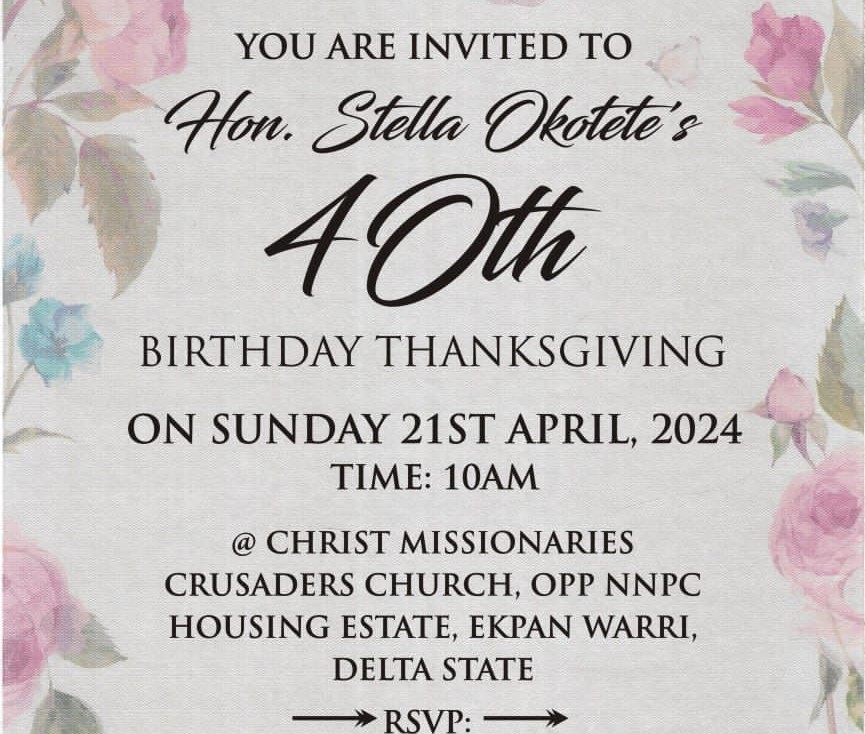Hon Stella Okotete whom the National Assembly declined to confirm as a minister last August on security grounds appears to have overcome that crease. On April 21st, 2024, she staged her 40th birthday in the form of a grand Thanksgiving Service on Sunday, April 21st, 2024, at the Christ Missionaries Crusaders Church in Warri, Delta State of Nigeria.

Hon Stella Okotete
When the invitation to the occasion landed at Intervention, a question instinctively flew to the person who sent the invitation to the online platform: “Is this not one of President Tinubu’s controversial ministerial nominees?” The reply came as follows: She is, but the reality is that she is nice, not corrupt, greedy or wicked. Am in Warri to honour her”.
Coming from the person who sent the reply – one of the very best of us, from whichever angle one cares to look at, be it ethical, ideological, public spiritedness and what have you – the reply left Intervention thinking.
A testimonial from a private citizen cannot counterbalance a security report but so also can an insider account not be trifled with. Is this a case of politics sadly killing the country? Could Stella Okotete be fighting to overwrite one of Nigeria’s flashy narratives of someone like her or is this a case of more sinned against than sinned?
Considering that every narrative is, in the last instance, someone’s truth and never the whole truth, protagonists of due diligence ought to be keener on some of these issues. A lot of narratives circulate and are consumed in Nigeria by unsuspecting citizens. One of such narratives in recent times is that of women as signifiers of mega-corruption. But corruption is not a class, gender, generational or territorial issue. Rather, it is an issue in unequal power relationship. Those in position to be corrupt at any one time can come from any social class, gender, region or religion, notwithstanding the elite dominance of the listing of mega-corruption at the moment. So, how come this narrative? Is it naivety to associate the narrative with another dimension of the cultural, gender and structural violence against women?




























